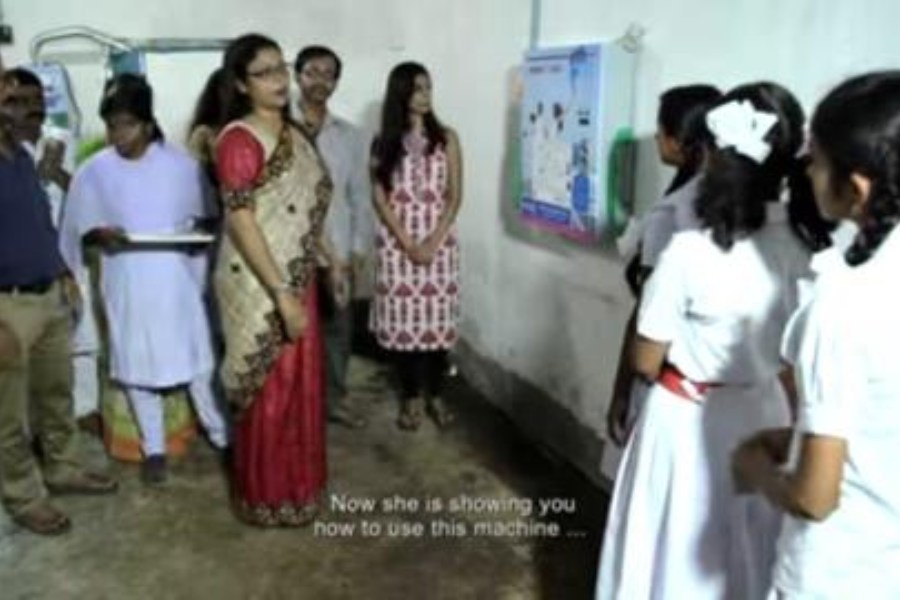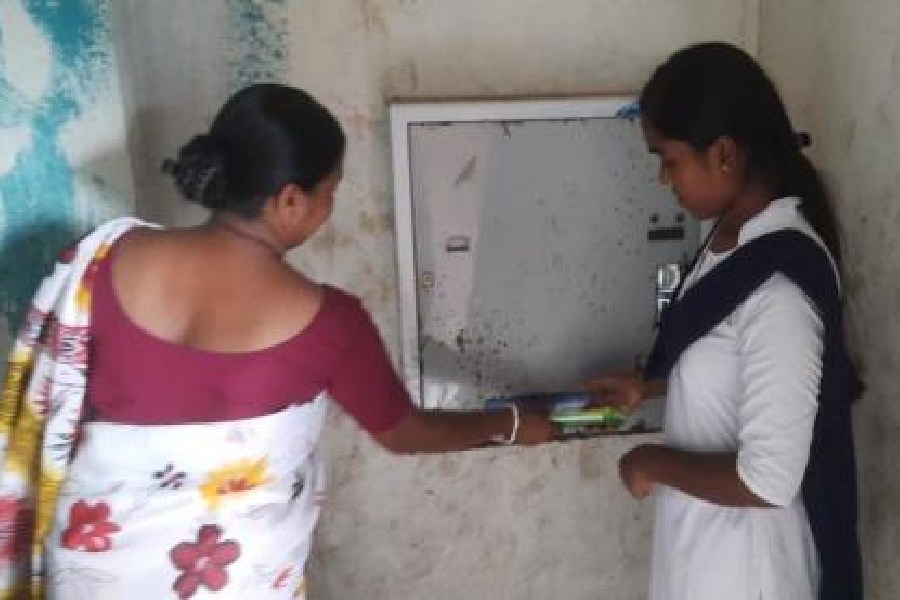A boy in a co-educational school goes to the common room and takes out a sanitary napkin from a vending machine. He tells his teacher that his sister’s school does not have a facility like this.
The scene is part of a short film that was made before the pandemic and is being used as a tool to create awareness about menstrual hygiene among school-going girls and boys.
The film on menstrual hygiene is based on the real-life experience of a Class VIII student at Krishnachandrapur High School in Mathurapur, South 24-Parganas, who lost her life in 2008.

A still from the short film
A few years later, the school installed a sanitary napkin vending machine. But even a decade on, awareness is still low, said the headmaster.
“Awareness on hygienic menstrual practices has to be a continuous process because we still have students who are first-generation learners, who associate a stigma with menstruation. We as a society have to do away with the taboo,” said Chandan Maity, headmaster of the school.
The girl whose story features in the film had acute anaemia. “She was using unhygienic cloth pads that she would wash in the pond, which led to infection,” a teacher said.
The film, directed by Dhananjoy Mandal, has been made available in a link, making it easy for teachers to share it in online class groups.
“We are showing it in classrooms and are also sharing the link so that students can see it and show it to family members,” said Maity.
On Sunday, the school will organise a session with girls and their mothers to talk to them about menstrual hygiene.
“In many cases, a girl will not have access to a sanitary napkin unless her mother understands the need for her to use one. Hence, it is important to talk to mothers as well,” said Maity.
The director of the Institute of Child Health in Kolkata, Apurba Ghosh, said awareness on menstrual hygiene is still low and there should be more awareness sessions.
“Unhygienic menstrual practices by adolescent girls can lead to infections and pose health risks. There should be training sessions by teachers,” he said.
The awareness is low not just in suburbs or rural areas, but also in urban areas. Sanitary napkins are still handed in black packets or wrapped in newspapers.
The taboo associated with menstruation is deep-rooted, said a teacher.
The film also speaks about the unavailability of clean toilets in schools, because of which girls desist from using washrooms and drink less water.
